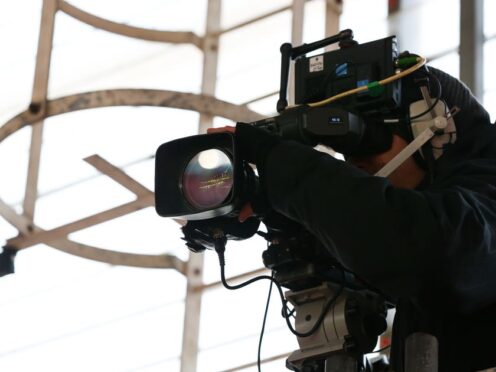The UK’s film and TV industry has seen “positive change” in culture and behaviours surrounding mental health and wellbeing, a Film and Television Charity survey has said.
Dubbed the Looking Glass, the industry-wide review offers an in-depth analysis of the state of mental health and wellbeing of the film and TV workforce.
A group of 2000 anonymous people working in the sector answered questions about conditions, culture, and the industry’s capability to respond to issues linked to poor mental health, including bullying and harassment, line management, and financial pressures.

In its third year, the survey found 80% of respondents agreed they sensed a positive change to the industry’s culture and behaviours.
The result marked a large shift from the 2019 flagship research, which stated just 10% of respondents considered the industry a mentally healthy place to work.
However, many of the year-on-year improvements, including those reporting poor mental health from 29% to 24% and those considering leaving due to poor mental health from 65% to 60%, were slight – signalling a long journey to better support the industry’s workforce.
Respondents noted working conditions and feelings of job security were improving, but extreme working hours – although decreasing – remain high.
Three quarters also identified future income as a key concern to financial and mental wellbeing amid the cost-of-living crisis.

While many recognised the industry is becoming better equipped to provide support, 52% also agreed better line management is critical to improving wellbeing in the long term.
The survey also suggested reports of bullying, harassment, and discrimination have dropped from 53% in 2021 to 46% in 2022, although it recognises that many do not report incidences when they happen.
Alex Pumfrey, who has led the UK’s Film and Television Charity since October 2017, said: “Although the picture is a complicated one, the latest Looking Glass Survey results show that positive change can be achieved.
“In the period since 2019 we have seen a concerted effort by many across the industry to improve on a pretty bleak situation and it is heartening to see that some of that effort is starting to pay dividends, with attitudes and overall mental health scores beginning to move in the right direction.”
However, the chief executive said work began from a “very low bar” and campaigns to date should be regarded as an “opening salvo”.
She added: “The release of this latest research is an opportunity to galvanise and to develop partnerships with the members of our Mental Health Task Force, to re-focus our strategy and to ensure that people across the industry understand that improvements, although sometimes hard won, can and must be made.
“Ultimately, however positive the signs may be, still only 11% of the industry workforce believe it is a mentally healthy place to work and that statistic must not be left unchallenged.”

The survey was prompted in 2019 by what Pumfrey previously called “a strong hypothesis” that there are “serious issues” with the industry’s approach to mental health.
Broadcasting union Bectu welcomed the research publication on Thursday and the “pleasing progress” it has showed, but stated there was “clearly lots more work to do”.
Philippa Childs, head of Bectu, said: “Across too many metrics the industry is simply too far behind national comparators, and it’s clear that long hours and resulting poor work-life balance are critical issues that need addressing.
“An industry is only as strong as its workforce and as the sector continues to thrive it’s critical that it listens to and acts on workers’ concerns.
“The high level of concern about coping with the cost-of-living crisis is also telling and should serve as a rallying call to Government to work with unions and industry to better support, prioritise and invest in the workforce.
“Progress on some important metrics is however encouraging and clear evidence that the industry is stronger collaborating together. Our film and TV industry is world-class and is full of inspiring, dedicated people and organisations pushing for lasting change – we urge the sector to tap into this passion to create a better industry for everyone.”
Amy Gustin and Deena Wallace, co-directors of the British Independent Film Awards (Bifa), added: “We are heartened to see the results of the latest Looking Glass Survey, which evidence positive changes across the industry, particularly surrounding the important issues of mental health and bullying and harassment.
“It is clear, however, that there are still considerable steps to be taken on the road to a fully equitable industry, including the need to better support line managers on set, and we are committed to continuing to work with our industry partners to maintain the positive direction of travel.”
